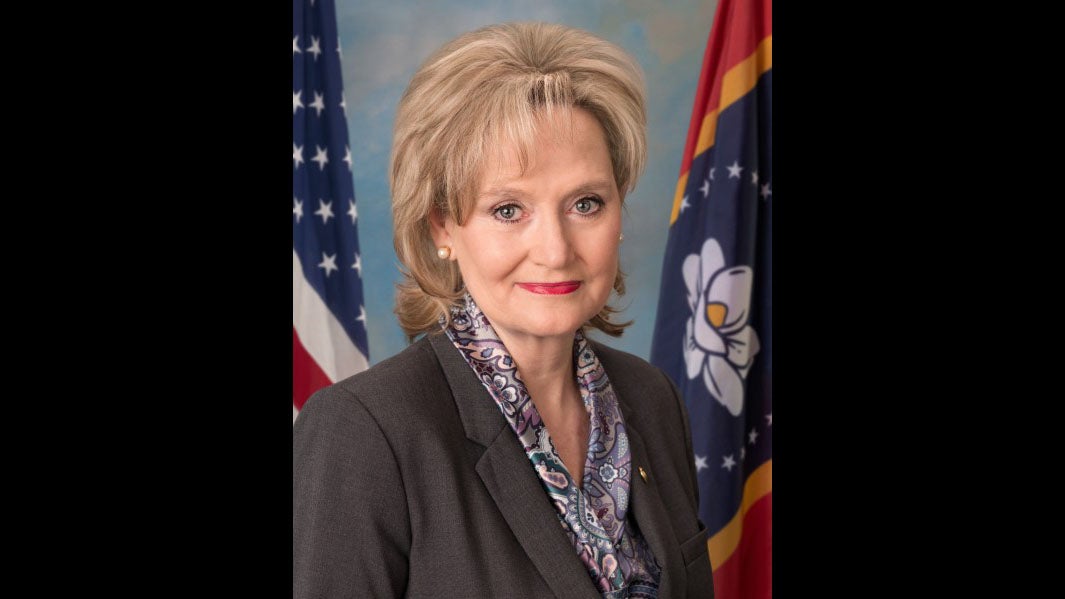U.S. Senate introduces Whole Milk for Healthy Kids Act
Published 12:50 pm Wednesday, June 14, 2023

- U.S. Sen. Cindy Hyde-Smith
The Whole Milk for Healthy Kids Act (S.1957) was introduced this week by Sen. Roger Marshall M.D. (R-Kan.). Sen. Cindy Hyde-Smith (R-Miss.), of Brookhaven, helped introduce the bipartisan legislation to amend the federal school lunch program guidelines to allow unflavored and flavored while milk to be offered in school cafeterias. The bill would expand healthy milk options in schools to improve students’ nutrition intake as a critical step toward improving child health.
“More and more we are seeing good things, like nutritious milk, get wrongly thrown out in the zeal to force so-called healthier lifestyles. Generations of mothers know that children need and thrive on milk, which provides essential nutrients necessary for healthy development,” Hyde-Smith said. “This legislation would restore whole milk as an option for students, which would be beneficial for them.”
“Today, 2 out of 3 children do not receive their recommended daily dairy intake. Our legislation aims to change that by reinstating whole milk in school cafeterias. I truly believe food is medicine, and by increasing kids’ access to milk, we will help prevent health complications down the road and encourage nutrient-rich diets for years to come. Whole milk is an excellent source of nutrients for students and adults alike in building strong bones. Plus, it tastes good,” Marshall said.
The Dietary Guidelines for Americans reports that nearly 90 percent of Americans do not meet their daily dairy intake recommendations. Additionally, leading nutritionists have found that whole dairy fats have no negative effect on a diet, and may even reduce risk of heart disease.
S.1957 seeks to require schools to include “whole, reduced-fat, low-fat, and fat-free” milk as options in the National School Lunch program, and to exempt milk from USDA saturated fat limits established in the Richard B. Russell National School Lunch Act. Current law requires flavored milk in schools must be fat-free, though schools may seek a waiver to offer low-fat (1%) flavored milk.
Additional Senate cosponsors include U.S. Senators Peter Welch (D-Vt.), Ron Johnson (R-Wis.), John Fetterman (R-Pa.), James Risch (R-Idaho), Susan Collins (R-Maine), Angus King (I-Maine), Kirsten Gillibrand (D-N.Y.), Mike Crapo (R-Idaho), and Chuck Grassley (R-Iowa.).
U.S. Representative Trent Kelly (R-Miss.) cosponsored the House companion bill (HR.1147), which was introduced by House Agriculture Committee Chairman Glenn “GT” Thompson (R-Pa.).
The National Milk Producers Federation and International Dairy Foods Association support the legislation.
“We applaud Senators Marshall and Welch for working to ensure all students have access to the healthy milk options that they will choose to drink. Most children and adolescents do not meet their daily dairy recommendations. This is a nutrition problem for our country’s youth because they are not taking in dairy’s unique nutritional profile, which includes 13 essential nutrients. By expanding the options in school meal programs to include the most popular varieties of nutritious milk, discouraging food waste and encouraging better nutrition, the bipartisan Whole Milk for Healthy Kids Act provides a commonsense solution that increases schools’ ability to choose milk varieties that best meet their students’ nutritional needs.” Jim Mulhern, President and CEO of National Milk Producers Federation said.
“The Whole Milk for Healthy Kids Act of 2023 would allow schools to provide a wider variety of nutritious milk options that children prefer to drink. Whole milk provides students with milk’s 13 essential nutrients for growth, development, healthy immune function, and overall wellness. Nutritionists, school meal professionals, and a wide majority of parents know that offering whole milk increases school meal participation, reduces food waste, and adds to the nutritional value of school meals for children and adolescents,” Michael Dykes, D.V.M., President and CEO of International Dairy Foods Association said.





